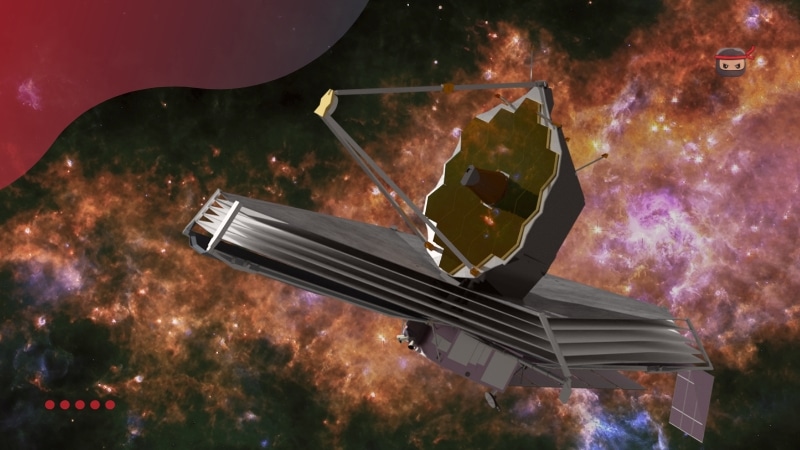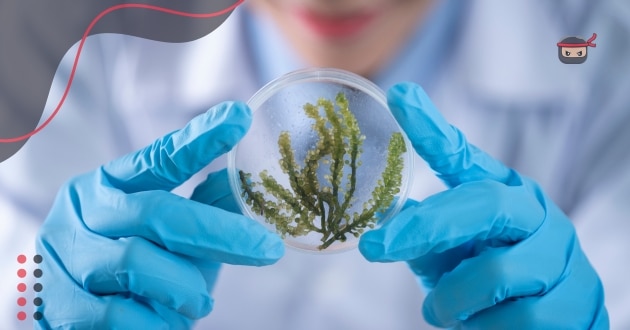Science news recent discoveries are essential if you are one of those who loves to talk about the universe, health, life and everything in between. It is a sign that you already know how important it is to follow each new step of scientific advancement.
Every week, scientists from all over the world reveal discoveries that, in some way, stir our curiosity. And often with our practical life as well.
Among the latest news, we have everything. From starless planets, fossils that mix dinosaurs and sea creatures, an antibiotic, natural supplements for mental health and even a technology capable of crossing the brain’s protective barrier without surgery.
Our goal is to show you the main news of scientific discoveries in recent times. So that you can have a preview of what the future may bring and understand how small discoveries can become great revolutions. Let’s go!
Best Science News Recent Discoveries

1. Wandering worlds and James Webb’s gaze

Imagine a lonely planet, with no star to orbit, wandering through cold, dark space.
These are so-called “wandering worlds,” and the James Webb telescope detected no fewer than six of them in the NGC 1333 nebula, about 960 light-years away.
The big surprise is that they have masses between five and fifteen times that of Jupiter, but they were not born as typical planets. Apparently, they were formed by the direct collapse of gas clouds.
Many of these worlds exhibit rings of dust. This raises the possibility that they are forming planetary mini-systems, as if they were “mini-suns” that have lost the chance to light up.
By the way, if you want to know everything about James Webb, we recommend that you visit NASA’s official website. News is constantly published by the telescope’s development team.
2. When prehistory meets the sea
If you think dinosaurs and seas never mixed, you need to know the discovery made in western Canada.
Students from McGill University and paleontologists from the Royal Saskatchewan Museum have found, for the first time in the region, fossils of the dinosaur Centrosaurus.
The find happened on the banks of the South Saskatchewan River, in a place that, 75 million years ago, was a coastal plain.
The scene, if we could go back in time, would be unique: on one side, terrestrial dinosaurs such as Centrosaurus and the small Citipes elegans. On the other, marine animals, all fossilized in the same place.
3. Lariocidin: a backyard antibiotic (Science News Recent Discoveries)
In Hamilton, Canada, researchers from McMaster University cultivated for a year, in the backyard of one of the scientists, a soil bacterium that ended up producing lariocidin. A looping peptide capable of blocking bacterial protein synthesis in a completely new way.
It has been shown to be effective against drug-resistant bacteria, one of the biggest challenges in modern medicine.
There is still a lot to be done before it becomes a viable drug. However, the discovery reinforces the importance of looking for solutions in our own backyard, literally.
4. GLP-1 and a well-deserved award
Endocrinologist Daniel Drucker of the University of Toronto has devoted decades of his life to the study of a hormone called GLP-1.
He discovered, in the 80s, that this substance reduces appetite, helps with weight loss and stimulates the pancreas to produce insulin.
The result? Treatments that have changed the lives of millions of people with diabetes and obesity, such as Ozempic and Wegovy.
This year, Drucker received the Breakthrough Award in Life Sciences, one of the most prestigious in the world, recognizing not only his discovery but also the global impact it has had on public health.
5. Blueberry vs. the Postpartum Blues
In the period after childbirth, many women face the so-called “postpartum sadness”.
Researchers at CAMH tested a natural supplement that combines blueberry extract with amino acids like tryptophan and tyrosine, which help replenish essential neurotransmitters.
The result? Two out of three participants who took the supplement in the first few days after giving birth had no or mild symptoms of the condition.
This is a simple, safe alternative to protect maternal mental health.
6. Parkinson’s and fruit flies (Science News Recent Discoveries)
It seems unlikely that flies can teach us anything about complex human diseases, but that’s what happened.
Researchers at Simon Fraser University found that increasing the copy of the Cdk8 gene in fruit flies with Parkinsonism helped eliminate defective mitochondria and reduced symptoms of the disease.
This gene has a human equivalent, CDK19, which opens up the possibility of creating gene therapies for patients.
7. Amyotrophic lateral sclerosis, rebellious proteins and an old remedy
Amyotrophic lateral sclerosis is a disease with no cure, but Canadian researchers have found 5-fluorouridine, a drug used against cancer.
They found that it prevents the misfolding of the SOD1 protein, one of the factors that contribute to the disease.
Tests on zebrafish have shown improved motor function, suggesting that repurposing existing drugs may speed up treatments for serious diseases.
8. Microbial fuel and human metabolismo (Science News Recent Discoveries)
Finally, a Canadian study revealed that gut bacteria produce a metabolite called D-lactate, which, upon entering the bloodstream, stimulates the liver to produce glucose and fat. In obese people, levels are higher, contributing to hyperglycemia and fatty liver disease.
To combat this, scientists have created a “gut substrate trap,” a biodegradable polymer that binds to D-lactate in the gut, preventing it from being absorbed.
Conclusion
Science is, essentially, a never-ending story. Each discovery is not an end point, but a new chapter.
And the most fascinating thing about recent science news discoveries is that, behind each technical data, there is curiosity, persistence and, in some cases, even luck.
From the Canadian backyard that hid an unprecedented antibiotic, to the wandering worlds wandering through space, to supplements that can change lives.
Everything reminds us that science is not far from us. It’s in the food we eat, the vaccines we take, the technology we use, and even the stars we observe.
Following these discoveries is more than a hobby: it is participating, even if at a distance, in the construction of human knowledge.
It is to stay ready for a future that, every day, arrives faster and that, as we have seen, can be much more surprising than we imagine.

